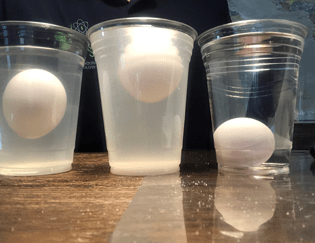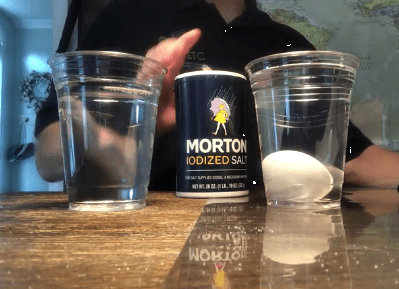The Sinking, Floating, Suspended, Eggs
The density of an object refers to the relative “heaviness” of the object. Objects sink when they are denser than the liquid that surrounds them. Most eggs are denser than water and so they sink when they are surrounded by it. However, an object that sinks initially can be enticed to float if the density of the fluid around it is increased sufficiently. When enough salt is added to the water, the density of the fluid increases and it becomes more dense than the egg. As a result the egg will float. If an egg is placed in a ½ glass of dense salt water, and then fresh water is carefully poured on top of it, the egg suspends in the middle of the glass. If floats in the more dense salt water layer, but sinks to the bottom of the less dense fresh water.
For older students, you can calculate the density of your eggs and specify density as ratio equal to the mass per unit volume of an object or substance. You can also draw fish on your eggs and discuss swim bladders and buoyancy.


